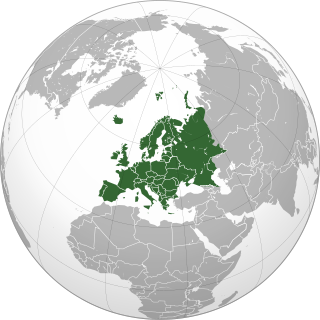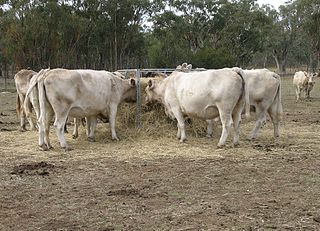Sam-Son Farm is a Thoroughbred horse racing stable with farms located in Milton, Ontario, Canada and Ocala, Florida. Originating in the 60's by Ernie Samuel, it began as a home for competition hunter/jumper horses. One Sam-Son horse, Canadian Club won the 1967 Pan-American Games Individual Jumping Gold medal and was a member of the 1968 Team Gold Medal for Canada at the Mexico Olympics ridden by Jim Day. Sam-Son continued to send entries to International show jumping, dressage and three ay venting events including the 1972 and 1976 Olympics and thereafter. In 1971 it became home to its first Thoroughbred race horse and officially entered racing in 1972.
Storm Cat was an American Thoroughbred stallion whose breeding fee during the peak of his stud career was $500,000, the highest in North America at the time. He was the leading sire in North America in 1999 and 2000, and the leading juvenile (two-year-old) sire a record seven times. He sired 108 graded stakes winners and eight champions, including Giant's Causeway, who also became a leading sire.

Round Table was an American Thoroughbred Hall of Fame racehorse. He is considered the greatest turf horse in American racing history.
Theatrical was an Irish-bred Thoroughbred racehorse who won the 1987 Breeders' Cup Turf and was a successful sire.

Stage Door Johnny was an American Thoroughbred racehorse best known for his win in the third leg of the 1968 U.S. Triple Crown series, the Belmont Stakes.
Halo was an American Thoroughbred racehorse and an important Champion sire.
Sunshine Forever was an American Champion Thoroughbred racehorse. Bred by Darby Dan Farm owner John W. Galbreath who owned his dam, Outward Sunshine, and his damsire, Graustark, Sunshine Forever was sired by Galbreath's 1972 Epsom Derby winner, Roberto.
Run the Gantlet (1968–1986) was an American Champion Thoroughbred racehorse and noted sire.

Waya (1974–2001) was a French Thoroughbred World Record holding racehorse who competed successfully in France and was a Champion in the United States. She was bred by the prominent French horseman Daniel Wildenstein through his breeding company, Dayton Ltd. Out of the mare War Path, her sire was Wildenstein's stallion Faraway Son, a Group 1 winner and the 1971 French Champion Miler.
Providential was an Irish-born Thoroughbred racehorse who competed successfully in France and won the most important race on turf in the United States. Bred and raced by Bertram R. Firestone, he was sired by Run the Gantlet, the 1971 American Champion Male Turf Horse and a son of Tom Rolfe, the 1965 Preakness Stakes winner and American Champion Three-Year-Old Male Horse. His dam was Prudent Girl, a daughter of Primera who raced in England where he won back-to-back editions of the Princess of Wales's Stakes in 1959-1960.
Nodouble (1965–1990) was an American Thoroughbred racehorse and sire. In a career that lasted from 1967 to 1970, he won eleven races and was twice voted American Champion Older Male Horse by the Thoroughbred Racing Association.
Phalanx (1944–1971) was an American Champion Thoroughbred racehorse. In 1947, he won the Belmont Stakes and was voted American Champion Three-Year-Old Male Horse.
Vanlandingham was an American Champion Thoroughbred racehorse.
Office Queen was a brown American Champion racehorse. Owned and bred by Stephen A. Calder, she descended from Nasrullah and Nearco.
Lord Avie was an American thoroughbred champion racehorse.
Trillion (1974–1987) was a French Thoroughbred racing mare who was an Eclipse Award winner in the United States.
Grey Dawn (1962–1991) was a French Thoroughbred Champion racehorse who was the only horse to ever beat Sea-Bird.
Traffic Judge (1952–1972) was an American Thoroughbred racehorse. He was owned by Clifford Mooers, proprietor of Walnut Springs Farm in Lexington, Kentucky, and trained by future U.S. Racing Hall of Fame inductee, Woody Stephens. On November 13, 1956 Clifford Mooers died of a heart attack at New York City's LaGuardia Airport while en route to see Traffic Judge compete in the Narragansett Special. His estate auctioned the horse and on December 24 he was purchased for $362,345.70 by Louis P. Doherty, owner of The Stallion Station on Muir Station Road in Lexington, Kentucky. Traffic Judge's race conditioning was then taken over by another Hall of Fame inductee, James W. Maloney.
Tiller was an American thoroughbred racehorse. Racing mainly on turf he won sixteen of his forty races between February 1977 and September 1980. He was not a champion, but won many important races and defeated many of the best racehorses of his era including Exceller and John Henry.












